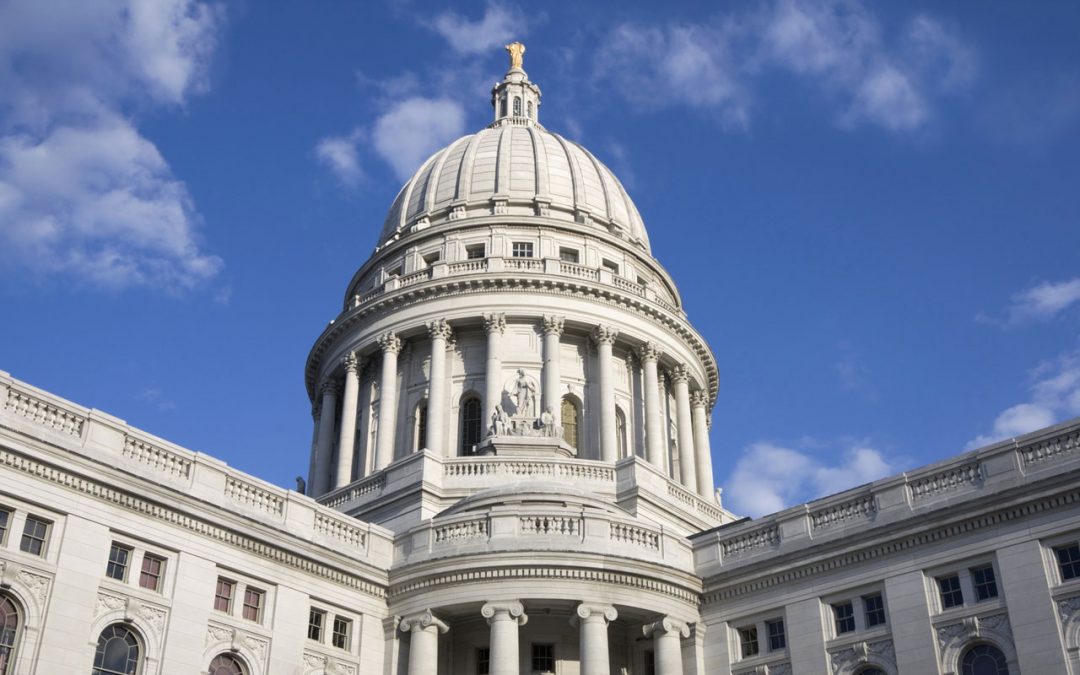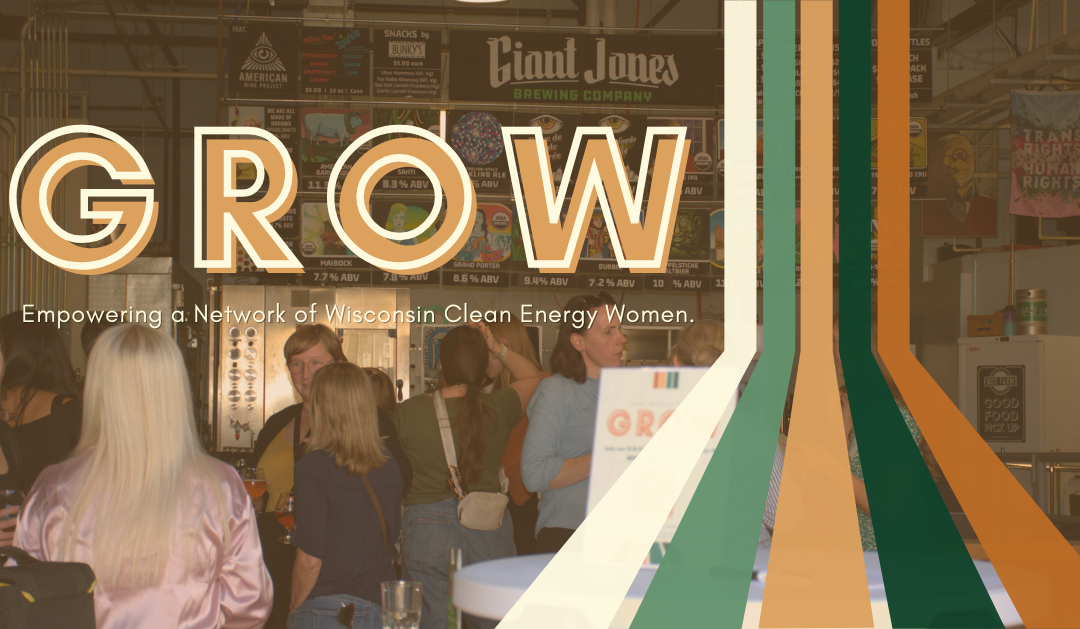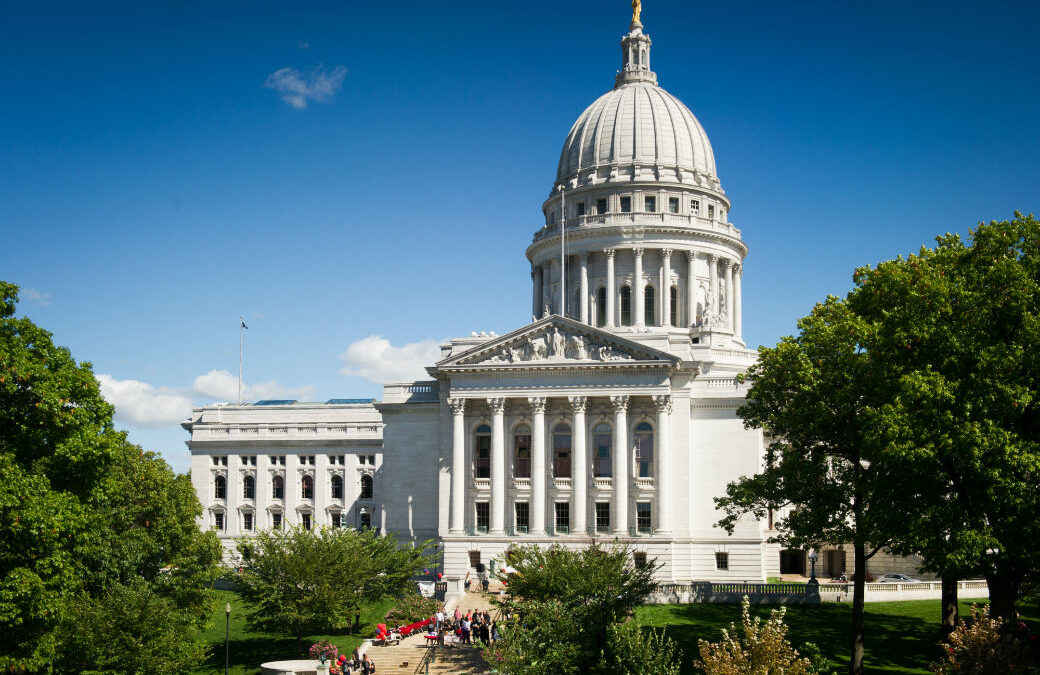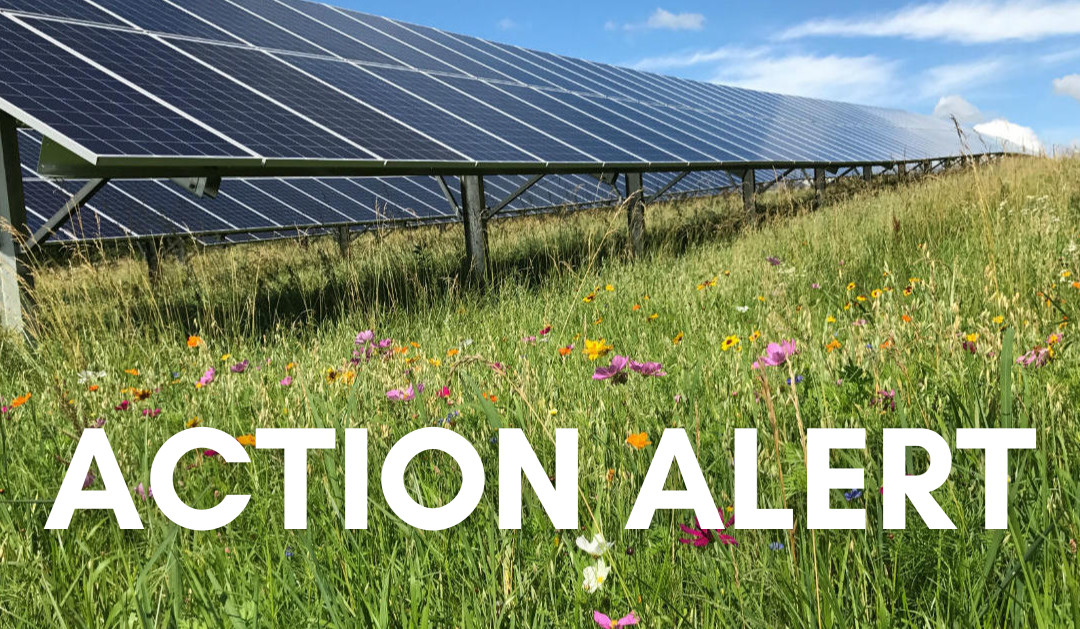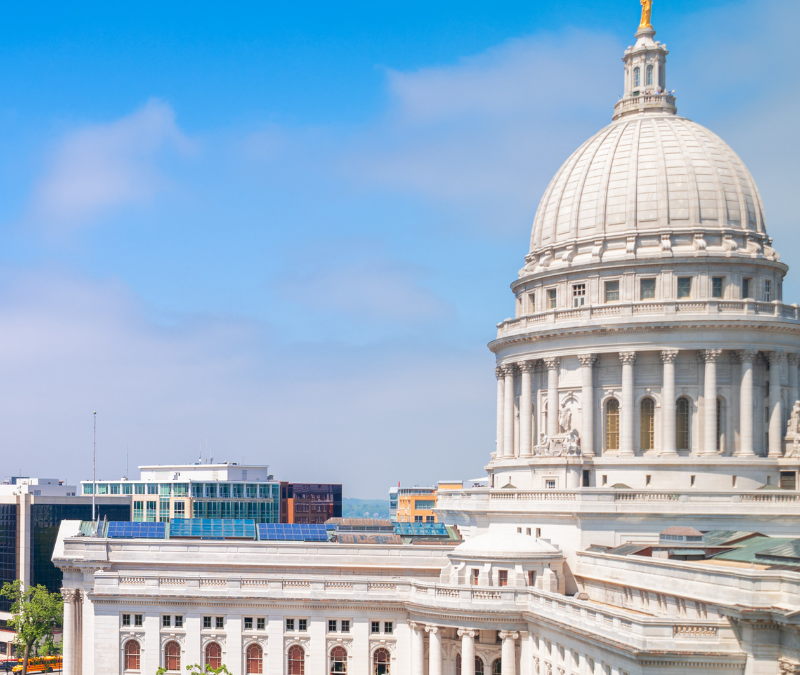
Clean Energy Legislative Update • January 2025
Working with the state legislature is both an art and a science — utilizing expertise and seizing opportunities, as well as continuous relationship-building. With the start of the 2025-26 legislative session, the process is intensified as we welcome new faces and navigate changes. The recent election led to 37 freshmen policymakers for Wisconsin’s legislature, resulting in changes to committee makeup and leadership in the State Assembly and Senate. Here are the highlights.
Senate Leadership
Republicans
Continuing as Majority Leader is Sen. Devin LeMahieu, President Pro Temp is Sen. Patrick Testin, Assistant Majority Leader is Sen. Dan Feyen, and Majority Caucus Chair is Sen. Van Wanggaard.
Changes to the Republican leadership include Sen. Mary Felzkowski (R) as Senate President replacing Sen. Chris Kapenga, and Sen Rachel Cabral-Guevara (R) as Caucus Vice-Chair, replacing Sen. Joan Ballweg who lost her senate re-election.
Democrats
On the Democratic side, continuing in their leadership roles are Minority Leader Sen. Dianne Hesselbein and Assistant Minority Leader Sen. Jeff Smith.
Sen. Mark Spreitzer moved up to the Minority Caucus Chair, replacing Chris Larson, and Sen. Dora Drake became the new Caucus Vice Chair, replacing Sen. Spreitzer.
The Senate makeup now is 18 Republicans – 15 Democrats.
Assembly Leadership
Republicans
Continuing as Speaker is Rep. Robin Vos, Speaker Pro Temp is Rep. Kevin Petersen, and Majority Leader Rep. Tyler August. Caucus leadership continues with Chair Rep. Rob Summerfield, Vice-Chair Rep. Cindi Duchow, Secretary Rep. Nancy VanderMeer, and Sergeant at Arms Rep. Treig Pronschinske.
New to leadership on the Republican side is Rep. Scott Krug (R) as Assistant Majority Leader, replacing retired Rep. Jon Plumer.
Democrats
On the Democratic side, continuing in their Democratic Leadership roles are Minority Leader Rep. Greta Neubauer, Assistant Minority Leader Rep. Kalan Haywood, Caucus Chair Rep. Lisa Subeck, and Caucus Vice Chair Rep. Clinton Anderson.
Changes in Democratic caucus leadership include new Minority Vice Chair Rep. Clinton Anderson, Secretary Rep. Mike Bare, and Sergeant at Arms Rep. Jodi Emerson. They are replacing Reps. Jill Billings, Kristina Shelton (retired), and Lee Snodgrass respectively.
The new Assembly make-up is 54 Republicans – 45 Democrats.
Committees
Senate Utilities and Tourism Committee
The five-member Senate Utilities and Tourism Committee retains Sens. Julian Bradley (R) as chair and Sen. Smith (D). New members are Republican Sens. Feyen, and Jesse James as well as new Senator (former Representative) Melissa Ratcliffe (D).
Assembly Energy & Utilities Committee
The Assembly Energy & Utilities Committee retains Rep. Dave Steffen as Chair, and Republican members Summerfield, Adam Neylon, Shae Sortwell, Paul Tittl, and Travis Tranel with Jerry O’Connor, Calvin Callahan, and Chanz Green joining them.
Returning Democratic members are Subeck and Supreme Moore Omokunde with additions of Rep. Sheila Stubbs and brand-new Rep. Maureen McCarville. The committee has three fewer members now with a total of 13, nine Republicans to four Democrats.
Joint Committee on Finance
The Joint Committee on Finance includes eight Representatives and eight Senators with four of the 16 representing the democratic party. This committee oversees bills with fiscal implications and crafts the state budget. The Co-Chairs remain Sen. Howard Marklein and Rep. Mark Born.
On the Senate Republican side, Sens. Duey Stroebel and Ballweg did not return to the legislature and Sen. Mary Felzkowski left the committee for her Senate President’s role. They were replaced by Sens. Romaine Quinn, Rob Stafsholt, and Bradley. Sen. Bradley also chairs the Senate Utilities and Tourism Committee of interest to us.
The Assembly committee side includes one new member — Rep. Karen Hurd who is replacing retired Rep. Terry Katsma.
More information about various committees and state legislators can be found on the Wisconsin State Legislature’s website https://legis.wisconsin.gov/.
In the upcoming weeks, RENEW staff will be meeting with the freshmen legislators and committee members to start fresh conversations on renewable energy and RENEW’s legislative priorities.

